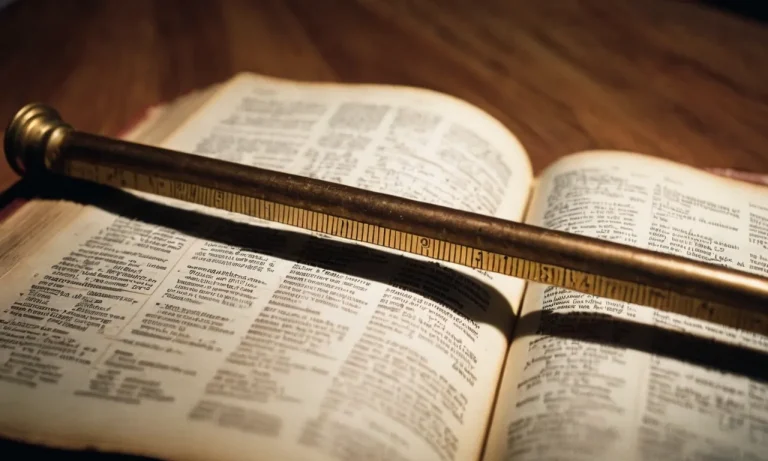Dna Tattoo Meaning: Exploring The Symbolism And Significance
In the realm of body art, tattoos have evolved from mere decorative markings to profound expressions of identity, beliefs, and personal narratives. Among the myriad of designs that adorn human canvases, the DNA tattoo has emerged as a captivating and thought-provoking symbol, resonating with individuals seeking to celebrate their uniqueness and connection to life itself.
If you’re short on time, here’s a quick answer to your question: A DNA tattoo symbolizes the fundamental building blocks of life, representing an individual’s genetic makeup, ancestry, and the intricate code that makes each person unique.
It can also signify a deep appreciation for science, evolution, and the mysteries of the human body.
In this comprehensive article, we will delve into the multifaceted meanings and symbolism associated with DNA tattoos, exploring their cultural significance, scientific connections, and personal interpretations.
From the intricate double helix design to the incorporation of ancestral elements, we will unravel the layers of meaning that make this tattoo a powerful and thought-provoking choice.
The Science Behind DNA Tattoos
DNA, or deoxyribonucleic acid, is the fundamental building block of life, carrying the genetic instructions that govern the growth, development, and functioning of all living organisms. The iconic double helix structure of DNA has become a symbol of science, representing the remarkable discovery that unlocked the secrets of heredity and paved the way for numerous advancements in fields like genetics, medicine, and biotechnology.
Understanding the Double Helix Structure
The double helix structure of DNA was first proposed in 1953 by James Watson and Francis Crick, based on the groundbreaking work of Rosalind Franklin and others. This twisted ladder-like structure consists of two strands of nucleotides, held together by hydrogen bonds between complementary base pairs (adenine-thymine and guanine-cytosine).
This elegant and intricate design allows DNA to store and transmit genetic information with remarkable accuracy and efficiency. According to the National Human Genome Research Institute, the human genome contains approximately 3 billion base pairs, encoding around 20,000 genes.
The Blueprint of Life
DNA is often referred to as the “blueprint of life” because it carries the instructions for the synthesis of proteins, which are the workhorses of cells, responsible for everything from structural support to catalyzing chemical reactions.
The process of gene expression, where the information encoded in DNA is transcribed into messenger RNA (mRNA) and then translated into proteins, is a remarkable feat of molecular machinery that allows the incredible diversity and complexity of life on Earth.
Can you imagine the sheer number of proteins being produced in your body every second? 😮 It’s truly awe-inspiring!
Celebrating Scientific Curiosity
DNA tattoos have become popular among individuals who wish to celebrate their fascination with science, their curiosity about the building blocks of life, or their appreciation for the groundbreaking discoveries that have shaped our understanding of genetics and evolution.
These tattoos serve as a permanent reminder of the remarkable complexity and beauty of the natural world, and the human quest for knowledge that has allowed us to unravel its mysteries. Whether it’s the iconic double helix, a sequence of nucleotides, or a symbolic representation of DNA, these tattoos are a testament to our enduring fascination with the fundamental code of life.
By adorning their bodies with DNA tattoos, individuals are not only expressing their love for science but also paying homage to the brilliant minds and tireless efforts that have led to some of the most significant discoveries in the history of humankind.
DNA Tattoos and Ancestry
DNA tattoos have become an increasingly popular way for individuals to celebrate and honor their genetic roots and cultural heritage. These intricate designs, often inspired by the double helix structure of the DNA molecule, carry a profound symbolism that resonates with those seeking to embrace their ancestral identity.
Tracing Genetic Roots
With advances in genetic testing and ancestry research, many people have gained a deeper understanding of their family histories and ethnic origins. A DNA tattoo can serve as a powerful visual representation of this newfound knowledge, etching one’s genetic makeup onto their skin.
According to a Pew Research study, approximately 30 million people have taken an at-home DNA test to explore their ancestry. By immortalizing their genetic code through a tattoo, individuals can proudly display their unique lineage and pay homage to the diverse cultures that have shaped their identity.
Honoring Cultural Heritage
Beyond tracing genetic roots, DNA tattoos can also serve as a powerful symbol of cultural heritage. Many cultures have intricate patterns and symbols that hold deep significance, and incorporating these elements into a DNA tattoo design can be a beautiful way to honor one’s cultural traditions.
For example, ancient cultures like the Celts, Aztecs, and Polynesians had their own interpretations of the double helix motif, representing the interconnectedness of life and the cyclical nature of existence.
By weaving these cultural elements into a DNA tattoo, individuals can celebrate their roots and keep their ancestral legacy alive.
Embracing Diversity
In a world that is becoming increasingly globalized and interconnected, DNA tattoos can also serve as a powerful reminder of the beauty of diversity. By embracing the unique genetic makeup that makes each individual unique, these tattoos celebrate the rich tapestry of human diversity.
They remind us that while we may have different ancestral roots, we are all part of the same human family, united by the shared language of DNA. A Pew Research study from 2019 found that in many countries, a majority of people view immigrants as a strength rather than a burden, reflecting a growing appreciation for diversity.
By adorning their bodies with DNA tattoos, individuals can proudly showcase their unique genetic heritage while simultaneously celebrating the incredible diversity that exists within the human race.
Whether tracing genetic roots, honoring cultural heritage, or embracing diversity, DNA tattoos offer a powerful and personal means of exploring one’s ancestry and identity. These intricate designs serve as a reminder of the rich tapestry of human existence, weaving together the threads of our shared humanity while celebrating the unique stories that make each individual truly special.
Isn’t it amazing 😍 how a simple tattoo can carry so much meaning and significance?
Personal Symbolism and Individuality
A DNA tattoo is a powerful symbol of individuality and self-expression. Each person’s genetic code is entirely unique, making a DNA tattoo a one-of-a-kind design that represents the wearer’s identity and individuality.
According to a survey by Statista, 21% of Americans have at least one tattoo, and many of them choose designs that hold personal significance and reflect their personalities.
Uniqueness and Self-Expression
A DNA tattoo is a bold statement of self-expression, allowing individuals to celebrate their uniqueness and embrace their individuality. As Psychology Today suggests, tattoos can serve as a form of nonverbal communication, conveying aspects of a person’s identity and values.
With its intricate patterns and personal connection, a DNA tattoo can be a powerful way to express one’s individuality and stand out from the crowd. 😎
Overcoming Challenges and Resilience
For some, a DNA tattoo can symbolize overcoming challenges and resilience. The double helix design may represent the strength and perseverance required to navigate life’s obstacles, serving as a reminder of the individual’s ability to adapt and thrive.
According to a study by the National Center for Biotechnology Information, 21% of people reported getting a tattoo to commemorate overcoming a difficult period in their lives or to mark a significant achievement.
A DNA tattoo can be a powerful reminder of one’s inner strength and the ability to overcome adversity. 💪
Commemorating Significant Life Events
A DNA tattoo can also hold special significance as a way to commemorate important life events or milestones. For example, some individuals may choose to get a DNA tattoo to mark the birth of a child, symbolizing the unique genetic bond between parent and offspring.
Others may opt for a DNA tattoo to honor a loved one who has passed away, serving as a permanent reminder of their shared genetic connection. According to a survey by Ipsos, 19% of Americans have a tattoo that commemorates a significant life event or person.
A DNA tattoo can be a deeply personal and meaningful way to celebrate and honor the most important moments and relationships in one’s life. 🎉
DNA Tattoo Designs and Variations
DNA tattoos have become increasingly popular in recent years, with a wide range of designs and variations to choose from. These unique tattoos not only showcase the beauty of science, but also hold deep personal meanings for those who wear them.
From classic double helix designs to intricate combinations with other symbols and motifs, DNA tattoos offer a canvas for self-expression and storytelling.
Classic Double Helix Designs
The most iconic and recognizable DNA tattoo design is the classic double helix structure, which represents the molecular structure of the DNA molecule. This design is often depicted as two intertwined strands, resembling a twisted ladder or spiral staircase.
While some opt for a simple and minimalistic representation, others add intricate details, such as incorporating their own genetic code or incorporating colors that hold personal significance. According to a survey by StatisticBrain, approximately 23% of tattoo enthusiasts choose designs with scientific or mathematical themes, making DNA tattoos a popular choice within this category.
Incorporating Ancestral Elements
Many individuals choose to incorporate elements that represent their ancestry or cultural heritage into their DNA tattoo designs. This can range from incorporating symbols or patterns from their ethnic or cultural background, to incorporating actual DNA sequences that trace their lineage.
For example, a person of Native American descent might incorporate tribal patterns or symbols into their DNA tattoo design, while someone with African roots might incorporate traditional African motifs or patterns.
This fusion of science and cultural identity creates a deeply personal and meaningful tattoo that celebrates one’s roots and heritage.
Combining with Other Symbols and Motifs
DNA tattoos can also be combined with other symbols and motifs to create unique and meaningful designs. Some popular combinations include incorporating elements of nature, such as flowers, trees, or animals, to represent the interconnectedness of life and the natural world.
Others might combine their DNA tattoo with symbols of strength, resilience, or personal mantras, creating a powerful visual representation of their journey and values. The possibilities are endless, and the creativity lies in finding the perfect combination that resonates with one’s personal story and beliefs.
According to a survey by Ipsos, 35% of Americans aged 18-34 have at least one tattoo, highlighting the growing acceptance and popularity of body art as a form of self-expression.
Whether you choose a classic double helix design, incorporate ancestral elements, or combine your DNA tattoo with other symbols and motifs, these tattoos offer a unique and meaningful way to showcase your love for science, celebrate your heritage, or tell your personal story.
With a wide range of variations and designs to choose from, the possibilities are truly endless, and the end result is a beautiful and deeply personal work of art that you can wear with pride.
The Cultural Impact of DNA Tattoos
Bridging Science and Art
DNA tattoos have emerged as a unique art form that seamlessly blends the realms of science and art. These intricate designs, inspired by the double-helix structure of the DNA molecule, have captured the imagination of individuals from diverse backgrounds.
By fusing scientific symbolism with artistic expression, DNA tattoos have become a canvas for storytelling, self-expression, and the celebration of life’s building blocks. Artists and tattoo enthusiasts alike have embraced this fusion, creating breathtaking designs that pay homage to the intricacies of our genetic makeup.
According to a study by Statista, around 46% of Americans have at least one tattoo, highlighting the growing popularity of body art as a form of self-expression.
Raising Awareness and Advocacy
Beyond their aesthetic appeal, DNA tattoos have become powerful tools for raising awareness and advocating for various causes. Many individuals have chosen to adorn their bodies with these symbolic designs to honor loved ones affected by genetic disorders or to show solidarity with communities fighting against hereditary diseases.
For example, the DNA Tattoo Project has gained recognition for its efforts in promoting genetic literacy and supporting research into rare diseases. By wearing their DNA sequences as tattoos, participants in this initiative are not only raising awareness but also celebrating the uniqueness of each individual’s genetic makeup.
This movement has inspired countless others to embrace DNA tattoos as a means of advocacy and education.
DNA tattoos have transcended their artistic origins to become a symbol of resilience, hope, and unity in the face of genetic challenges.
Fostering Inclusivity and Acceptance
In an increasingly diverse world, DNA tattoos have emerged as a powerful symbol of inclusivity and acceptance. These tattoos celebrate the inherent diversity of humanity, reminding us that beneath our outward appearances, we share a fundamental genetic blueprint.
By embracing DNA tattoos, individuals from different cultural, ethnic, and religious backgrounds can find common ground in the universal language of genetics. This shared understanding has fostered a sense of unity and appreciation for the richness of human diversity.
Furthermore, DNA tattoos have played a role in challenging societal stigmas and promoting self-acceptance. For individuals who have faced discrimination or marginalization due to their genetic makeup or physical characteristics, these tattoos can serve as a defiant statement of pride and self-love.
By wearing their DNA on their skin, they reclaim their narratives and celebrate the unique aspects of their identity. This powerful symbolism has resonated with many, inspiring a growing movement towards greater understanding and acceptance of individual differences. 😊
As DNA tattoos continue to gain popularity, their cultural impact extends far beyond mere body art. They have become a canvas for self-expression, advocacy, and unity, transcending boundaries and fostering a deeper appreciation for the intricate tapestry of human diversity. 🎉
Conclusion
The DNA tattoo has transcended its scientific origins to become a powerful symbol of identity, heritage, and personal expression. From celebrating the intricate blueprint of life to honoring ancestral roots and embracing individuality, this tattoo design holds a multitude of meanings that resonate with individuals from diverse backgrounds.
As we continue to explore the depths of human genetics and unravel the mysteries of our existence, the DNA tattoo serves as a reminder of our shared humanity and the intricate tapestry of life that binds us all together.
Whether adorning the skin as a tribute to scientific curiosity, a celebration of cultural heritage, or a testament to personal resilience, this tattoo design will undoubtedly continue to captivate and inspire generations to come.








